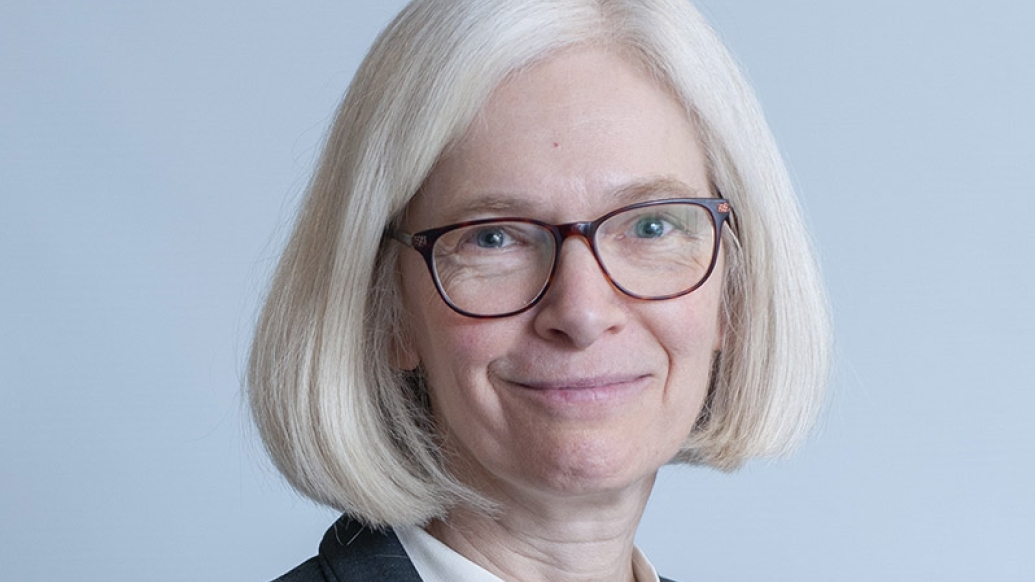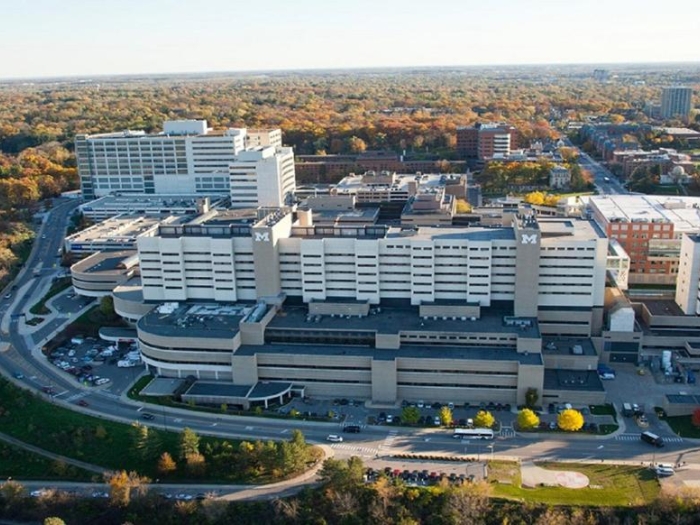Author |

Debra F. Weinstein, formerly the vice president for graduate medical education at the Mass General Brigham health care system in Boston, has been appointed executive vice dean for academic affairs at the University of Michigan Medical School and chief academic officer for Michigan Medicine.
In this role, Weinstein will serve as an integral member of the executive team that manages the oversight of the Medical School and Michigan Medicine. The executive vice dean is responsible for the educational mission, which includes strategic development, operational oversight, and budgetary accountability. She also will provide oversight for faculty affairs and faculty development activities for the Medical School.
Weinstein joined the leadership team at Michigan Medicine on November 15. Her appointment was approved by the U-M Board of Regents October 21.
"We are privileged and honored to have Dr. Weinstein join our leadership team," says Marschall Runge, executive vice president for medical affairs, dean of the Medical School, and CEO of Michigan Medicine.
"Her unique and accomplished background will certainly enrich both our medical school and health system alike. We are so proud to welcome her to this new role and look forward to working together."
At Mass General Brigham, Weinstein was responsible for more than 300 graduate medical education programs with 2,400 residents and fellows. She has led local and national initiatives focused on enhancing medical education. She also was an associate professor of medicine at Harvard Medical School and a senior physician in internal medicine and gastroenterology at Massachusetts General Hospital.
"I'm thrilled to be joining such a wonderful group of colleagues at a leading institution that I've long admired," says Weinstein. "By having an outstanding medical school and health system integrated together, we are provided with great opportunities to help chart the future of medical education and health care — and improve health for the people of Michigan and beyond."
Weinstein graduated from Wellesley College. After receiving her medical degree from Harvard Medical School, she completed clinical training in internal medicine and gastroenterology at Massachusetts General Hospital, was selected as chief resident, and served as associate chief and director of residency training in medicine. She then became director of graduate medical education for Massachusetts General Hospital and the Brigham and Women's hospitals and then vice president for graduate medical education for the Mass General Brigham health system. She also has been a trustee of the MGH Institute for Health Professions.
At Harvard Medical School, Weinstein contributed to key steering committees related to curriculum reform, the learning environment, accreditation, continuing medical education, and faculty affairs. Her scholarship has focused on medical education innovation, and she is currently principal investigator of a $2 million "Reimagining Residency" grant from the American Medical Association focused on competency-based, time-variable graduate medical education.
She served as deputy editor of Academic Medicine, chaired the oversight committees for the New England Journal of Medicine and the Journal of Graduate Medical Education and is a member of the New England Journal's Perspectives Advisory Board.
"Both the U-M Medical School and the health system share a deep commitment to education, and this is hugely important to me," said Weinstein. "Our shared priorities around diversity, equity, and inclusion, as well as support for the wellbeing of students and clinicians and the constant pursuit of innovation are all things I care deeply about."
As a national medical education leader, Weinstein served on the board of the Accreditation Council on Graduate Medical Education, the Institute of Medicine Committee on Governance and Financing of GME, and as chair of the Association of American Medical Colleges Group on Resident Affairs.
She chaired a Josiah Macy Jr. Foundation consensus conference on reforming graduate medical education and organized and led a pair of workshops hosted by the National Academies of Science, Engineering and Medicine focused on harnessing medical education data to improve outcomes. She was a 2006-2007 American Council on Education Fellow and is a recipient of the ACGME Parker Palmer Courage to Lead Award and John C. Gienapp Award — the organization's highest honor.
"While I have focused on medical education throughout my career, I still have much to learn as a newcomer at U-M," said Weinstein. "I look forward to immersing myself in the community and working together to establish and achieve many ambitious goals for the future."





